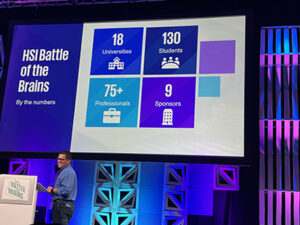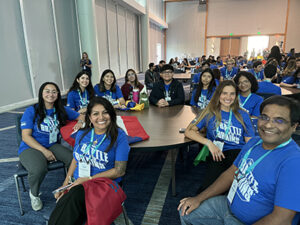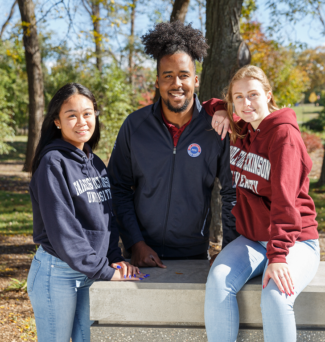The mission of the Maxwell Becton College of Arts and Sciences is to develop the intellectual, creative and career potential of our diverse student body by offering a demanding curriculum in a caring and supportive environment. We are committed to being a superior teaching institution, so our students will flourish while they’re in college and long after they graduate.
Through its curriculum, Becton College Liberal Arts and Sciences aims to develop in students the skills, intellectual orientation and knowledge to achieve their educational, professional and personal goals.
The flexibility of the Becton College General Education curriculum allows each student to develop an individualized program that combines major and minor fields with clusters of related electives. The curriculum provides for appropriate skill development in writing, oral presentation, languages, and mathematics based on placement testing and educational goals.
Dean’s Welcome
Welcome to Fairleigh Dickinson University’s Maxwell Becton College of Arts and Sciences. As Dean of the College, I am honored to work with such a strong faculty and staff whose dedication to the education of our students is evident both in the classroom and beyond. Our faculty come to us from the finest universities in the nation and have chosen FDU as their intellectual home because they and the College are committed to teaching and research in ways that will enhance the lives of our students both now and in the future.
Whatever course of study you choose, you will find first-rate programs that will at once challenge and inspire you. These include strong majors in the sciences, the creative arts, the social and behavioral sciences, and the humanities. Our students come from all over the country, indeed the world, to study with us and to prepare for careers as citizens of the world. The depth of our connection with the United Nations, for example, distinguishes us from any other University in the nation.
Students in Becton College have the opportunity to explore a wide range of interests through their majors and a huge selection of minors, as well as through our general education curriculum. This curriculum enables students to choose courses from areas that explore world cultures, the creative arts, the most recent developments in science, math, and computer sciences, and political, social, and humanistic issues.
Outside of the classroom, you will be encouraged to participate, according to your interests and your choice of Florham or Metropolitan campuses, in the arts, entertainment, and nonprofit programs, some in conjunction with other colleges and universities. Many of our students work directly with their faculty on research projects, have an opportunity to present at both regional and national conferences, and publish in peer-reviewed journals. What a tremendous advantage this presents to those preparing for either graduate study or the first stages of a career!
I look forward to seeing you on campus and to speaking with you. If you have any questions or ideas you would like to share, please do not hesitate to contact me directly.
Janet Boyd
4th Annual HSI Battle of the Brains National Competition
 A cross-disciplinary team of FDU students (from Silberman College, Becton College, and Gildart Haase School of Computer Science and Engineering) competed this past week at the 4th Annual HSI Battle of the Brains National Competition and placed 3rd in this competition.
A cross-disciplinary team of FDU students (from Silberman College, Becton College, and Gildart Haase School of Computer Science and Engineering) competed this past week at the 4th Annual HSI Battle of the Brains National Competition and placed 3rd in this competition.
Kudos to the students and their faculty mentors (EJ Ko, Avi Vatsa, and Luz Flores) for this impressive achievement.
Students representing FDU at the competition held in Orlando included:
 Tiffany Coelho (Becton College)
Tiffany Coelho (Becton College)
Joulliann M. Collado (GHSCSE)
Jannet Martinez (Silberman College)
Fiorella Merrimanmendez (Silberman College)
Ashley M. Rodriguez (Silberman College)
Valerie Sanchez Caro (Silberman College)
Valentina Torres Da Silva (GHSCSE)
Oliver Villalta (GHSCSE)
They have competed against some of the best in the country and in achieving this distinction they make FDU proud! As Dr. Ko expressed it “I can’t emphasize enough the importance of cross-disciplinary collaboration in solving real-world societal challenges. Our FDU students are showing they’ve got what it takes!”



